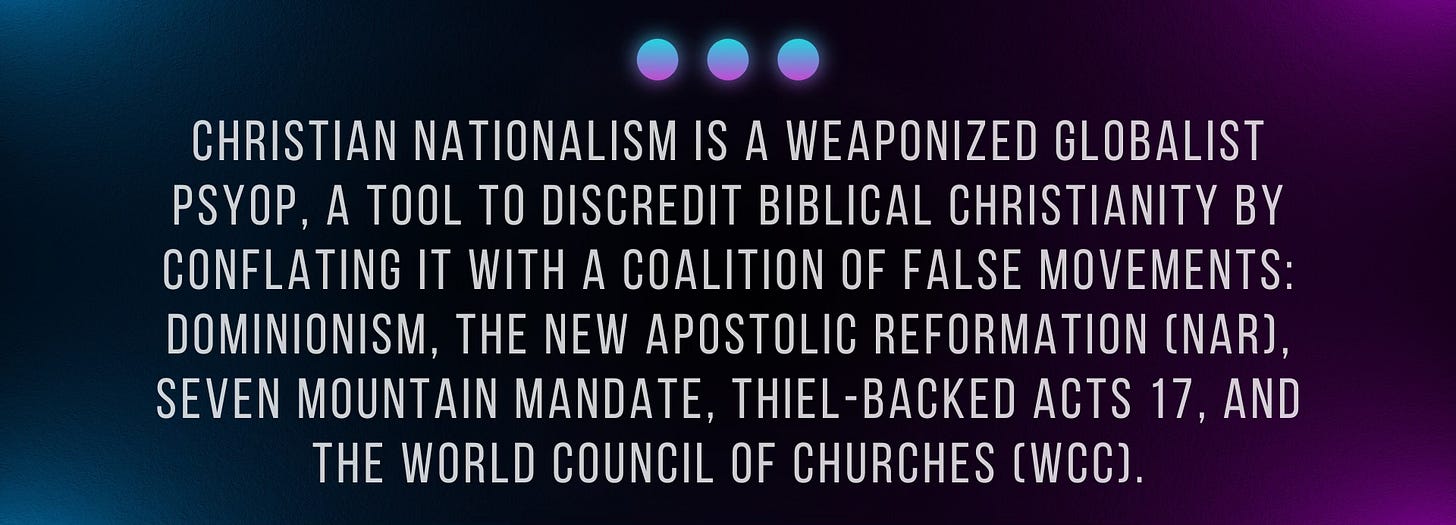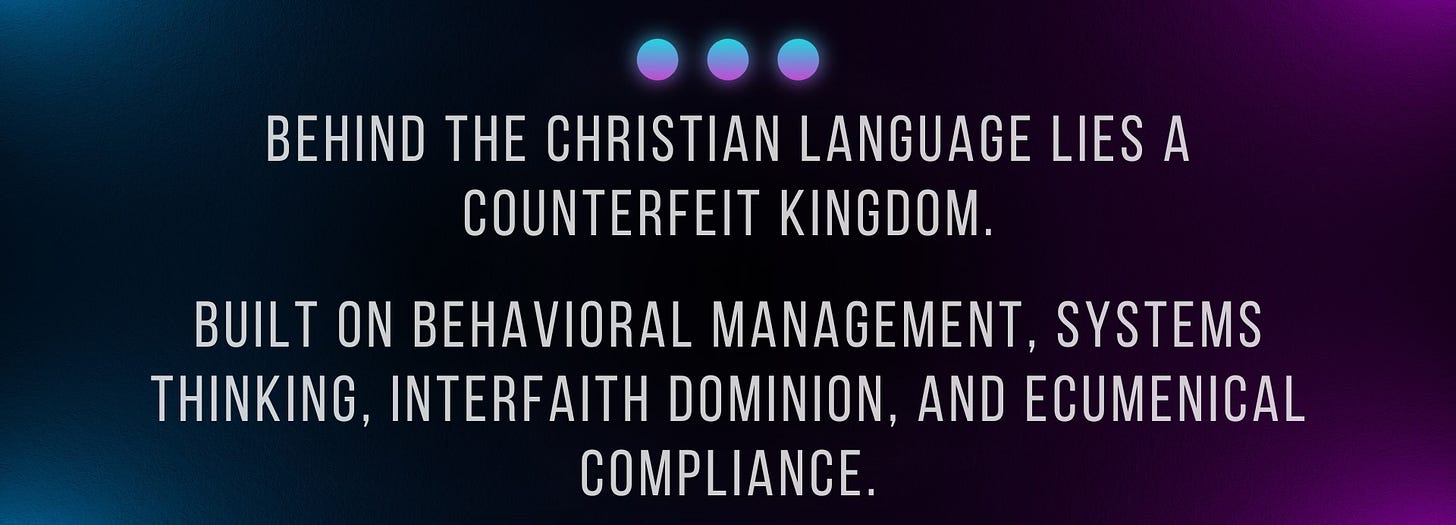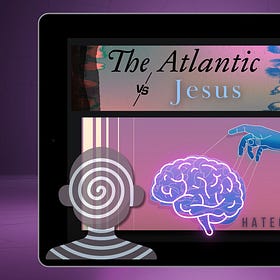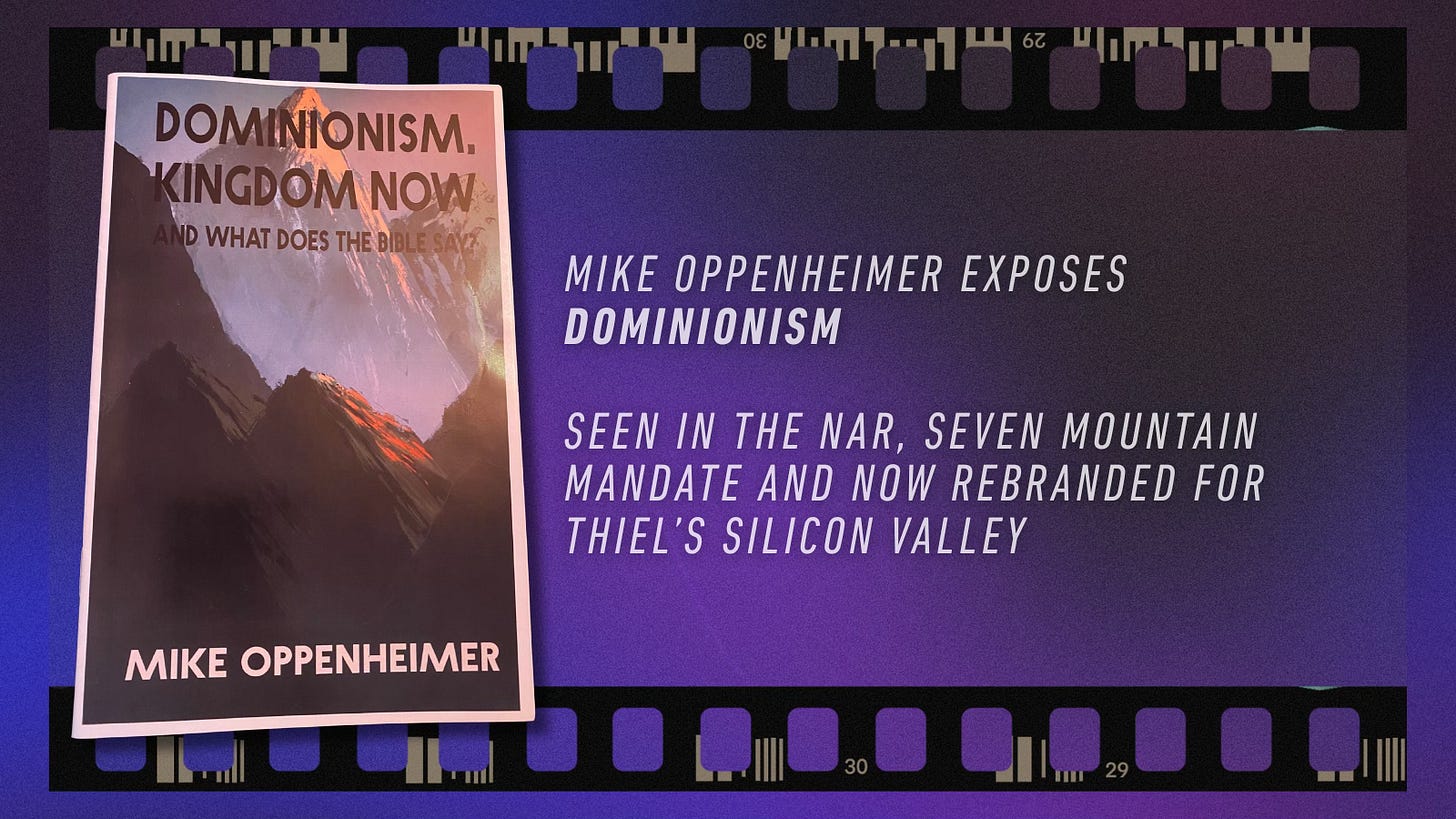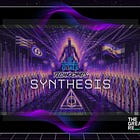Phoenix, We Have A Problem
You’re still burning the wrong heretic. Reformed theology is not the enemy.
Summary: This article offers another (2nd response) detailed theological and ideological response to Courtenay Turner’s The Phoenix Conspiracy, a researched critique of technocratic authoritarianism that unfortunately collapses faithful Christianity into the very system it opposes. In light of Patrick Wood’s recent endorsement of Turner’s claims, without theological precision, this piece seeks to clarify the difference between biblical Christianity and Dominionist distortions, refute key factual errors, and warn against the weaponized use of terms like “Christian Nationalism” that are being used to pathologize Reformed believers and justify their exclusion from public life. Note: We offer this correction in a spirit of partnership not hostility. Holding our peers in the fight against technocracy to the highest standard is how we win.
This is Part One of a detailed response to Courtenay Turner’s piece, “The Phoenix Conspiracy.”
Patrick Wood Video Clip
With the recent public endorsement by Patrick Wood of Courtenay Turner’s article The Phoenix Conspiracy, first through a direct post and then again a few days later in a video where he praised the article, we find it necessary to revisit this conversation. This marks the second time Wood has made imprecise and problematic public statements on this issue. (Wood’s follow-up video above). His continued use of the term “Christian Nationalism” without clearly defining it reinforces confusion rather than clarity. The term is not a neutral descriptor; it is a weaponized label, crafted and deployed by ideological adversaries to isolate and demonize biblical Christianity through psychological warfare. Without careful distinctions, even sincere resistance voices like Turner and Wood risk reinforcing the very narrative being used to marginalize faithful believers. Thus, we must go deeper, not only to affirm the helpful aspects of their warning, but to correct these conflations and clarify the theological ground that must never be surrendered.
“Christian Nationalism” is a Red Herring
While Patrick Wood’s critique of technocracy is often insightful, it is problematic that Wood and Turner use the regime’s own term “Christian Nationalism” to describe the rising threat. This language was coined and weaponized by globalist think tanks to vilify any Christian influence in civic life, while deliberately conflating biblical faith with Dominionist error.
What we are witnessing is not a reformed biblical movement, but a rebranded integrationalism, a merger of Roman Catholic natural law theory, NAR-style Kingdom Now theology, and technocratic governance frameworks. The real danger is not a “Christian nation” per se, but a counterfeit Christendom aligned with the UN’s SDGs, behavioral management, and interfaith compliance.1
Courtenay Turner’s article The Phoenix Conspiracy: How Silicon Valley’s Shadow Network Is Engineering America’s Constitutional Collapse is a lengthy look at the present crisis threatening the American Constitutional Republic. Turner’s warnings about technocratic authoritarianism, synthetic ideologies, and digital feudalism are timely and critical. We commend her courage in exposing infrastructure of this rising global regime.
However, to preserve the very liberty she seeks to defend, it is essential to rightly define the spiritual and theological categories at stake. Her article commits a fatal category error, collapsing true biblical Christianity into the very movement she aims to warn against. This is not only inaccurate; it is dangerous. It risks aiding the very totalitarian goal she aims to resist: the scapegoating and eventual exclusion of biblical Christians from public life.
Factual Inaccuracy on Doug Wilson and the Flogging Claim
One of the more egregious misrepresentations in Turner’s article is the uncritical repetition of the claim, first circulated by Mother Jones, that Doug Wilson has advocated public flogging as a replacement for incarceration. This is factually untrue. The quote in question is pulled from a decades-old piece of speculative legal writing in which Wilson rhetorically critiques the modern penal system. It was never a policy proposal, nor does it reflect the actual governance position of Wilson, his church, or the CREC denomination. To cite this claim as evidence of a present-day authoritarian campaign is both dishonest and defamatory. It reveals a willingness to adopt progressive media framing over careful investigation of primary sources.
Critics who accuse Doug Wilson of promoting flogging are either careless readers or willful misrepresenters of his actual words. In his article That Time Virginia Flogged a Baptist, Wilson explicitly denounces the flogging of dissenters and uses the incident not to excuse or defend such abuse, but as a rhetorical and theological illustration to clarify the proper role of Christian magistrates. Far from endorsing such actions, he argues that Christendom 1.0 had “bugs that needed to be fixed,” and that any future Christian political framework must conform to what God actually commands, not what past Christian rulers thought He commanded. His point is that the standard for justice must be grounded in God’s revealed character, not in human traditions or secular moralism. Wilson’s use of the flogging incident is a thought experiment: he challenges readers to reflect on whether Christ approves, disapproves, or is indifferent, in order to demonstrate the necessity of grounding civil law in divine, not arbitrary, authority. That critics portray this as advocacy for flogging only highlights their unwillingness, or inability to distinguish satire, argument, and theology.
Read Doug Wilson's full article here: https://dougwils.com/books-and-culture/s7-engaging-the-culture/that-time-virginia-flogged-a-baptist.html
The Issue is Always The Revolution
Spoiler alert, yes, there is such a thing as the Woke Right and we need to get wise about it because our free society depends on it.
While there will always be bad actors in any movement, religion, or theological camp—those who lean into heresy, cause confusion, or function as literal chaos agents—we must be honest about what we’re seeing. The "Woke Right" is real, and we certainly recognize it operating within segments of the nominal Christian circuits. It’s a big topic, a big problem and we’ve written much about it. Opportunists and plants do exploit biblical language to advance political agendas that are disconnected from the gospel. But this reality does not justify collapsing faithful, historic, Reformed Christianity into the same category as technocratic collaborators or Dominionist ideologues.
We must draw lines where Scripture draws them, not where media narratives suggest they should be.
“Christian Nationalism” is a weaponized globalist psyop, a tool to discredit biblical Christianity by conflating it with a coalition of false movements: Dominionism, the New Apostolic Reformation (NAR), Seven Mountain Mandate, Thiel-backed ACTS 17, and the World Council of Churches (WCC). Behind the Christian language lies a counterfeit kingdom built on behavioral management, systems thinking, interfaith dominion, and ecumenical compliance.
Again, we aren’t witnessing a biblical movement, but a rebranded integrationalism: a merger of Roman Catholic natural law theory, NAR-style Kingdom Now theology, technocratic governance frameworks, and ecumenical partnership with globalist institutions.
Lex Libertas or Lex Technocratia?
His talk of “sustainable solutions” and decentralization mirrors the very technocratic deception we’ve been warning about. It’s part of the same blueprint we see in Peter Thiel’s world—conservative and Christian language used to mask alignment with globalist goals like SDGs, self-sovereign identity, and stakeholder capitalism (which is really stakeholder sovietism).
The Problem with “Christian Nationalism” Ambiguity, Bias, and Overreach
Turner’s use of the term “Christian Nationalism” lacks theological precision. Rather than defining it carefully, she relies on extremely biased, non-traditional progressive sources. Thus, the term is used as a catch-all label for anything resembling conservative Christian political engagement, Reformed theology, patriarchal family structures, or public expressions of faith. In doing so, she adopts the ideological framing of adversarially biased sources like Mother Jones, Adam Ericksen (United Church of Christ), and Julie Ingersoll, all of whom hold progressive or heterodox views on Christianity.
United Church of Christ: The Most Progressive Denomination in America
Read the ironically-biased and fatally fallacious Mother Jones article, To Understand JD Vance, You Need to Meet the “TheoBros“
https://www.motherjones.com/politics/2024/09/theobros-jd-vance-christian-nationalism/
Ingersoll claims that both reformed Protestants and the New Apostolic Reformation (NAR) stem from the theology of R.J. Rushdoony, a serious and yet silly misrepresentation:
“Out of Rushdoony’s movement emerged two camps: the charismatic Christians now known as the New Apostolic Reformation, and the Reformed Protestants, which include the TheoBros. They share the goal of creating a Christian nation, says Ingersoll.”
- Kiera Butler, To Understand JD Vance, You Need to Meet the ‘TheoBros’
While Rushdoony was a controversial figure, who we do not agree with on all points, his notion of Christian Reconstructionism was a Reformed, confessional movement rooted in ecclesial structure, while the NAR is a charismatic, post-Pentecostal movement steeped in mystical experiences, modern apostles, and Latter Rain eschatology *NOTE—Latter Rain*. To claim they share a common theological origin is historically irresponsible and demonstrably false.
This source represents a classic example of elite media narrative warfare, using Mother Jones’ signature blend of alarmist progressive journalism, selective framing, and rhetorical smear to conflate a small ideological subset with broader, orthodox Christian belief. (In the interest of time and space, I break down the fallacious barbs of the Mother Jones article in the footnotes below.)2
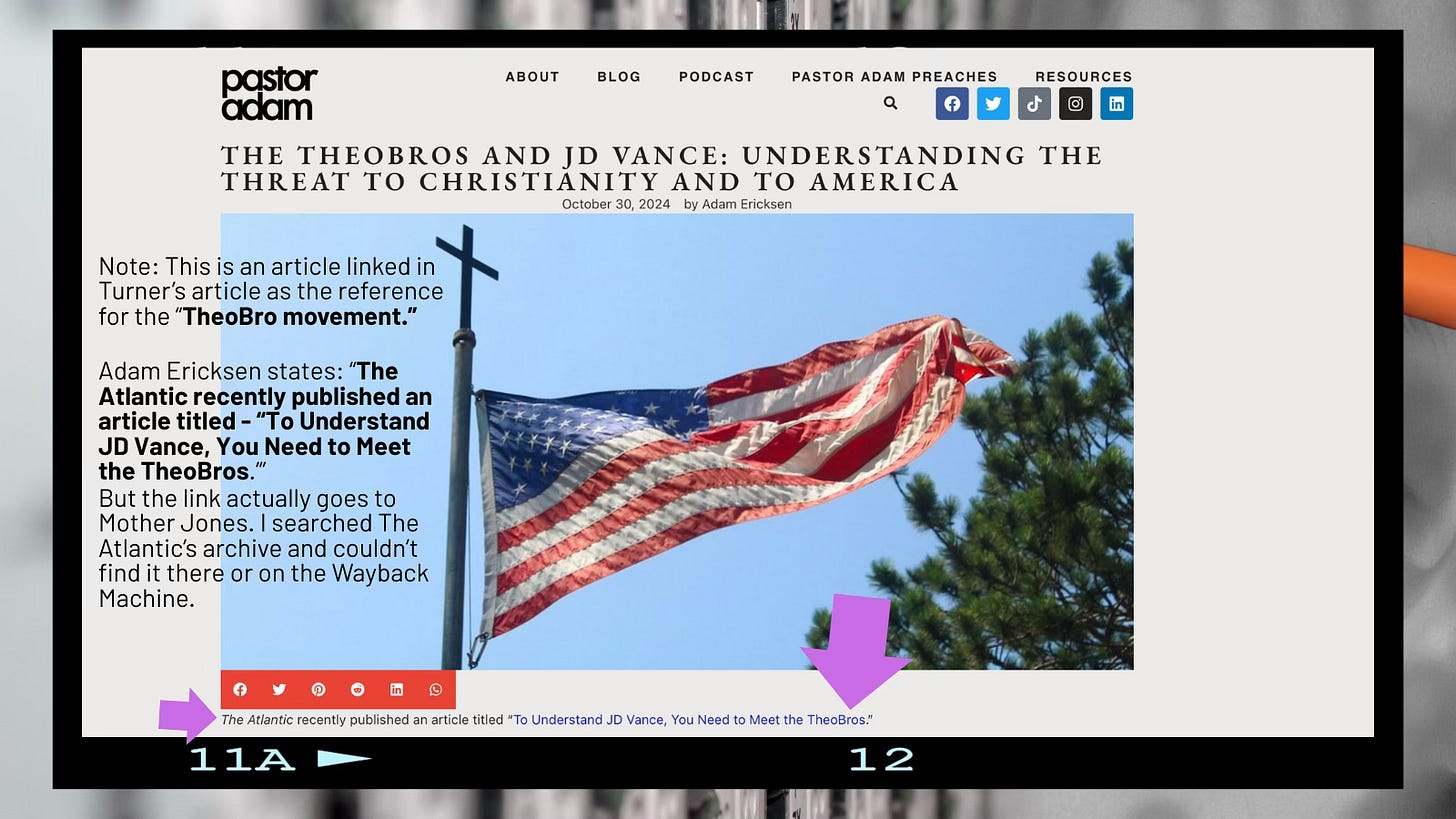
“TheoBro” is not a theological category, it’s literally a propaganda Hatecraft term.
It was crafted to discredit biblically faithful Reformed Christians by associating them with extremism, misogyny, and authoritarianism. Like “Christian Nationalist,” it’s a psyop of defamation and intolerance, used to shame doctrinal conviction and silence public witness.
“Hatecraft” refers to the deliberate manufacturing of hate-based narratives for political or cultural manipulation. It is a psychological operation designed to assign malicious intent or extremism to individuals or groups by misrepresenting their beliefs, associations, or goals.
In this context, the term is used to describe how media, think tanks, and activist writers create false equivalencies- such as between Reformed Christianity and authoritarianism in order to justify censorship, marginalization, or social punishment. It functions as a form of reputational sabotage and controlled opposition framing.
"TheoBro" is a pejorative slang term used to describe young, male, online Reformed Christians particularly those who are outspoken, theologically rigorous, and active in social or political commentary. The label is applied dismissively to suggest arrogance, authoritarian leanings, or an overly combative tone, especially on issues like gender roles, biblical authority, or Christian civil engagement.
While the term draws from “theobro” (theological + bro culture), its real function is ideological framing to link traditional Reformed theology to right-wing extremism, Christian Nationalism, or even techno-authoritarianism, regardless of accuracy.
The term began circulating on Twitter and progressive blogs in the late 2010s, but gained prominence in mainstream media by 2023–2024, particularly through Progressive Christian critics reacting to the rise of conservative male theologians on platforms like YouTube, X (formerly Twitter), and Substack. Left-leaning journalists, such as Kiera Jones, who popularized the term in pieces like “To Understand JD Vance, You Need to Meet the ‘TheoBros,’” equate Calvinist political engagement with authoritarian tech elites like Curtis Yarvin or Nick Land.
The Atlantic vs. Jesus
The main goal of identity politics is to cause an emotional response. Social engineers know very well that a confused emotionally unbalanced society can be pushed more easily in a particular direction.
Unbalanced Sources in Turner's Characterization of Christianity
More significantly, Turner excludes any contribution from orthodox conservative Christian scholars or theologians. There is no engagement with serious theological voices who have offered rigorous, biblical distinctions between appropriate Christian political engagement and false dominionist movements. No voices from historic Protestantism, the Magisterial Reformers, or even contemporary Reformed thinkers are invited into the conversation. This exclusion leads to a portrayal that lacks doctrinal discernment and unwittingly slanders biblically faithful Christians by placing them within the same ideological framework as technocrats, transhumanists, or crypto-authoritarian cults.
This omission is especially striking in light of Turner’s leadership of the Cognitive Liberty Conference, https://cognitivelibertyconference.com/ a movement which, by her own description, seeks to “empower individuals to reclaim their mental autonomy in a world filled with information overload, disinformation, and psychological manipulation.” Promotional material for her upcoming Cognitive Liberty Conference declares that attendees will receive “essential tools to protect your youth, foster their flourishing, and defend against political and psychological warfare.” These are commendable aims. Yet, in the very article under discussion, Turner relies on ideologically biased and theologically errant sources to define and critique Christian theology and practice. This reliance contradicts her stated mission of critical discernment and intellectual sovereignty. Instead of drawing from voices committed to biblical fidelity and theological coherence, she adopts narratives that mirror the reductionist tactics of the very psychological manipulations she seeks to expose.
Thus, Turner conflates multiple distinct streams:
Reformed Christian cultural theology (e.g., Doug Wilson’s Kuyperian postmillennialism),
A technocratic pagan elite’s appropriation of biblical symbols,
And actual authoritarian ideologies masquerading as Christianity.
It is a logical fallacy to reject a doctrine because some who profess it act inconsistently or hypocritically. As C.S. Lewis reminds us in The Screwtape Letters, one of the Enemy’s most effective strategies is to draw attention to the peculiarities and failures of others so that we stop listening to the truth. So it is with Calvinism and the doctrines of grace: the missteps of some who claim the name do not negate the truth of the doctrine. The standard for judgment must be Scripture, not the flaws of its misusers. As Lewis might put it, we must not throw away a true map simply because a poor traveler lost his way while holding it.
Turner's claim that “Christian Nationalism” forms one leg of a techno-feudal control system alongside Game B and Dark Enlightenment ideologies is not substantiated with doctrinal distinctions or biblical definitions. Instead, she relies on speculative associations, guilt-by-proximity, and secondary radical left sourcing that paints all Reformed believers with the same broad brush as postliberal ideologues and Silicon Valley opportunists.
To be clear: there are certainly individuals using Christian language to justify authoritarian tendencies. There are heretical movements rooted in Dominion Theology, such as the New Apostolic Reformation (NAR) and the Seven Mountains Mandate. But these are not representative of the Reformed tradition or biblical Christianity. They are distortions, spiritual counterfeits that must be named and rejected.
The Phoenix Flummoxed
Turner also makes the serious theological mistake of framing the phoenix as a "Christian symbol of resurrection." This reflects a syncretistic blend of Greco-Roman, Gnostic, and alchemical imagery with biblical theology. While early Christian thinkers like Clement of Rome may have used phoenix references allegorically, the creature is fundamentally a pagan symbol later absorbed into esoteric systems, not into biblical Christianity.
By framing the phoenix as a Christian motif, Turner opens the door to esoteric confusion and undermines her otherwise strong critique of technocratic symbolism. True Christian resurrection hope is grounded in the historical resurrection of Jesus Christ, one of the most well-attested events of the Roman Empire, not mythical birds or metaphysical cycles of destruction and rebirth.
Smear by Association
Turner’s article merges Reformed Christian figures, especially Doug Wilson, and Stephen Wolfe, alongside a matrix of techno-authoritarian actors such as Peter Thiel, Curtis Yarvin, and Balaji Srinivasan. This is an ideological and theological category error.
There is a vast difference between: Kuyperian postmillennialism and neoreactionary techno-monarchy, Calvinist ecclesiology and surveillance capitalism, biblical patriarchy and Silicon Valley's militarized masculinity.
It is true that certain Christian cultural movements, including Classical Christian education, use bold and unapologetic language about biblical order, gender roles, and cultural renewal. But this does not justify collapsing them into a schema of totalitarian digital control. The gospel of Jesus Christ is not a tool of empire, it is a call to repentance and new birth.
The Dangerous Confusion Between Dominionism and Biblical Christianity
This is Part One of a detailed response to Courtenay Turner’s piece, “The Phoenix Conspiracy.”
Misreading Cultural Engagement as Dominionism
Another key misstep is Turner’s conflation of any form of Christian civic or cultural engagement with Christian Nationalism. This mistake is echoed across mainstream media and progressive discourse.
But the Protestant Reformation, the Magdeburg Confession, and the American founding were all deeply shaped by biblical resistance theory. These were not theocratic revolutions, they were affirmations of God’s moral order over and against lawless tyranny. Engaging in culture, shaping education, or advocating biblical law as a moral foundation is not the same as calling for a theocracy.
We must distinguish between:
Dominionism: a heretical movement promoting spiritual conquest before Christ returns.
and
Reformed (Traditional Protestant) Christianity: a confessional faith that proclaims Christ as King but awaits His physical return.
Turner collapses these into one, and in doing so, she reinforces the narrative of the enemies of the gospel.
The Woke Right Is Real but Biblical Christianity Is Not the Problem
We must also gently but firmly address a concern that extends beyond Turner’s article itself: Patrick Wood’s endorsement of her framing without theological clarity. While Wood has done important work in exposing the infrastructure of technocracy, his recent affirmation of Turner’s article, without qualification, risks validating some of its most damaging conflations. By promoting the piece and failing to distinguish between biblical Christianity and its counterfeits, Wood inadvertently contributes to a narrative that undermines the very believers he would otherwise defend.
This is not a question of intent but of consequence. Silence or imprecision at this level, especially from respected voices in the liberty movement, has the effect of reinforcing the false equivalence between faithful Christianity and authoritarian ideologies.
As followers of Christ, we are called to speak the truth in love (Ephesians 4:15), and to judge with righteous judgment (John 7:24). That requires us to challenge misrepresentations no matter where they come from, even when they appear among our allies.
Yes, there are grifters, showmen, and wolves in the conservative Christian camp. The “Woke Right” is real as mentioned earlier. It mimics progressive strategies, trades in tribal identity, and uses Christian branding for political revolution. This should be rebuked.
But Turner makes no effort to distinguish these actors from faithful, historic, Reformed Christianity. Instead, she absorbs the framing of elite media like Mother Jones, who portray traditional Christian convictions on gender, family, law, and national identity, as signs of white supremacy or fascism.
Her reliance on this framing does not empower resistance to technocracy. It strengthens the Beast’s case for surveillance, censorship, and cultural reprogramming.
If we fail to separate false dominion from true discipleship, we risk joining the ranks of those who "have a zeal for God, but not according to knowledge" (Romans 10:2).
A Call for Precision, Discernment, and Biblical Courage
Courtenay Turner’s Phoenix Conspiracy rightfully exposes facets of the ideological scaffolding of our collapsing republic. She identifies real threats, technocratic governance, elite manipulation, and a false civic religion rising. However, her critique loses clarity and effectiveness when it turns its focus onto faithful reformed Christians using distorted definitions and guilt-by-association logic.
By failing to distinguish between dominionist heresy and biblical orthodoxy, Turner unintentionally participates in a long-standing strategy of the enemy: to slander the true church by conflating it with the counterfeit. She joins a chorus of voices, both secular and spiritual, who would paint Christ-centered conviction as a dangerous political program. This is not just careless; it is spiritually destructive.
Please Take Note
We write this not to dismiss Turner’s courage, but to deepen the necessary conversation. The true church must not be lumped in with post-Christian schemes of civilizational dominance. We are not building a techno-feudal empire; we are preaching the gospel of a crucified and risen King. Our kingdom is not of this world. Our weapons are not of the flesh. And our hope is not in cultural supremacy but in eternal glory.
Let us be sober-minded and clear-headed. Let us resist every attempt to turn the gospel into a tool of political conquest or to redefine truth through the lens of strategy, optics, or influence. If we are to withstand what is coming, it will not be through curated alliances or clever branding, but through the uncompromised proclamation of the Word of God.
In the words of the apostle Paul:
"For I decided to know nothing among you except Jesus Christ and him crucified." (1 Corinthians 2:2)
Let the world misunderstand us. Let the elites malign us. Let the false church slander us. But let us not be found ashamed of Christ or confused about the mission He gave us. In an hour of great deception, clarity is mercy. In an age of collapse, truth is defiance.
Soli Deo Gloria.
The Christian Nationalism Trap
The term Christian Nationalism has been weaponized by the collectivist Progressives. But now, your favorite alternative media voices, who should know better, are using this language as a broadly vague, emotionally charged label without clear definitions or logical grounding. Sloppy language and shallow research leads to misinformed readers and listeners…
About Armor of Truth: https://armoroftruth.substack.com/about
Download the Armor of Truth Mobile App Free
NEW! AoT Locals
NEW! AoT Telegram
Join our AoT Newsletter email list
Armor of Truth, Inc is a 501(c)(3) Non Profit Organization
Donations are tax deductible
By supporting Armor of Truth you are helping to reach thousands of people daily with the Gospel of Jesus Christ and encouragement to persevere in a world that is hostile to the gospel. Please consider making a donation to help support this mission.
Support Armor of Truth Donate
Christian Nationalism is a weaponized globalist psyop, a tool to discredit biblical Christianity by conflating it with a coalition of false movements: Dominionism, the New Apostolic Reformation (NAR), Seven Mountain Mandate, Thiel-backed ACTS 17 Silicon Valley “Smart Christians”, and the World Council of Churches (WCC).
Behind the Christian language lies a counterfeit kingdom built on behavioral management, systems thinking, interfaith dominion, and ecumenical compliance.
We aren’t witnessing a biblical movement, but a rebranded integrationalism: a merger of Roman Catholic natural law theory, NAR-style Kingdom Now theology, technocratic governance frameworks, and ecumenical partnership with globalist institutions.
The real danger is not a “Christian nation,” but a counterfeit Christendom aligned with the UN Sustainable Development Goals (SDGs), interfaith coalitions, behavioral compliance systems, and globalist spiritual governance.
This Mother Jones article “To Understand JD Vance, You Need to Meet the ‘TheoBros’” https://www.motherjones.com/politics/2024/09/theobros-jd-vance-christian-nationalism which seems to be one of Turner’s primary sources on critiquing Christianity is not a serious journalistic investigation. It’s a narrative construction aimed at demonizing reformed Christians, equating theological conservatism with extremism, preemptively disqualifying Christian participation in public discourse, and normalizing persecution and marginalization under the guise of fighting “Christian nationalism.” The article is shot through with logical fallacies, overgeneralizations, ideological biases, an exercise in classic Marxist tactics to paint a distorted picture of Christianity and conservative political theory.
For these reasons, one of Turner’s primary sources for making her case about the third leg of the technocratic stool ends up playing directly into the script she would like to refute: marginalize those who affirm biblical truth, reframe traditional values as hate, and replace Christianity with a therapeutic, compliant civic religion.
Overgeneralizations and Mischaracterizations
“TheoBros” as a Monolithic Group: No evidence is given that “TheoBros” is a formal group or coherent movement. The article lumps together various individuals across age groups, theological camps (Presbyterian, Baptist, Postmillennial, Classical Christian), and institutional affiliations. It conflates personal idiosyncrasies with collective ideology.
Mischaracterizing Reformed Theology: Calvinism is described as “rigid and deterministic,” with no explanation of its biblical or historical foundations. Rushdoony is said to have “spawned” both the NAR and Reformed Christian nationalists—a gross theological error, since these groups differ on the authority of Scripture, ecclesiology, and pneumatology.
Uncharitable Readings of Doctrine: The article treats statements about male headship, family order, and national heritage as inherently violent or misogynistic. Assuming that traditional Christian views on gender, family, and authority are necessarily extremist without engaging their theological reasoning.
Deep Ideological Biases
Progressive Secular Framing: The entire article operates under the unexamined assumption that:
Patriarchy = misogyny
National identity = racism
Religious orthodoxy = extremism
Masculine leadership = authoritarianism
This reveals a postmodern, feminist, and globalist lens that cannot comprehend a biblical worldview as morally legitimate.
Pathologizing Christian Belief: The article doesn’t just critique bad behavior—it treats belief in biblical authority, male headship, or national covenant as symptoms of mental dysfunction or authoritarian desire. Christianity is no longer a faith—here, it’s a psycho-political pathology.
Selective Outrage: The author reveals her own biases by making no mention of leftist movements that use aggressive or even violent rhetoric (e.g., BLM leaders, Antifa, or pro-choice activists). Only conservative Christians are treated as existential threats—applying standards unevenly.
Smearing through “Extremism” Labels: The word “extremist” is used repeatedly but never defined. This tactic is used to: Lump together orthodox Christians with racists and misogynists, de-legitimize their political or theological concerns, and create a moral panic to justify social marginalization.
Logical Fallacies
Straw Man Fallacy: The article builds a caricature of “TheoBros” by focusing on the most extreme, outlier statements (e.g. repealing the 19th Amendment, executing heretics, or praising slavery) and treats them as representative of the entire Reformed or postmillennial Christian movement.
Guilt by Association: JD Vance is portrayed as a TheoBro-adjacent extremist, yet in the article, he is accused of simply echoing values like family, rootedness, and shared national identity. Figures like Stephen Wolfe are smeared by association with people like Andrew Torba or Richard Spencer’s mentor Paul Gottfried. The fallacy: Association does not imply agreement with every view or behavior of others in one’s orbit.
Slippery Slope Fallacy: The article implies that if TheoBros or Christian nationalists gain influence, America will spiral into theocratic authoritarianism, women will be flogged, and heretics executed. There’s no evidence that mainstream Christian conservatives advocate such outcomes or have any legislative power to enforce them.
Ad Hominem Fallacy: The author targets personalities with ridicule and scorn, focusing on tone (“extremely online,” “bearded,” “mancaves,” “flamethrowers”) rather than engaging with their actual ideas. Douglas Wilson is mocked for flamboyant metaphors and satire, not the substance of his theology. It is perfectly reasonable to disagree with Wilson. It is not reasonable to cite 100% Marxist leaning sources.
Poisoning the Well: Before even quoting any of the men named, the piece primes the reader by saying these are “extremely online” men who want to “make America white again” and end women’s suffrage. As if every man named, and Christians who may hold to traditional Protestant theology in general, also affirm those extreme positions. This primes emotional disgust and shuts down critical thinking before any evidence is offered.
False Cause (Post Hoc): The author implies that JD Vance’s statements on national identity are direct echoes of Wolfe-style Christian nationalism, ignoring broader and historical uses of the same language in mainstream American political speech—Correlation ≠ causation.
Theonomy · Postmillennialism · Reformed Theology · Christian Nationalism · Curtis Yarvin · Nick Land · Dominionism · New Apostolic Reformation · Seven Mountain Mandate · Technocratic Christianity · ACTS 17 Collective · World Council of Churches · Interfaith Dominion · Ecumenical Compliance · SDG Religion · Biblical Christianity · Globalist Spiritual Governance · Counterfeit Christendom · Natural Law Theory · Christian Psyop





